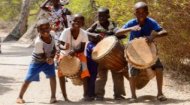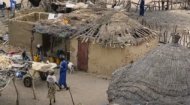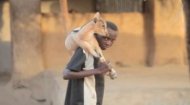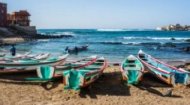Senegal Culture and TraditionsTags: Senegal Culture, Senegal Culture and Traditions, Senegal Culture Video, Senegal Culture Pictures, Senegal Ethnic Culture, Senegal Festivals Culture |
|
Senegal Culture |
Senegal Culture |
Senegal Culture | Senegal Culture |
Explore all about the West African nation of Senegal in articles, pictures, videos and images.
More >
|

Music and dance are intrinsic to Senegalese culture, serving as powerful forms of expression, celebration, and storytelling. Senegal is the birthplace of Mbalax, a popular music genre that blends traditional Senegalese sabar drumming with Western pop, funk, and reggae influences, popularized globally by artists like Youssou N'Dour. Traditional instruments like the kora (a 21-stringed bridge-harp), sabar drums, and tama (talking drum) are integral to ceremonies, festivals, and daily life, providing a vibrant soundtrack to the nation's rhythm. Dance, often spontaneous and energetic, accompanies most musical performances, reflecting the joy and vibrancy of the people. Senegal boasts a rich artistic heritage, evident in its diverse range of traditional crafts. Artisans demonstrate exceptional skill in wood carving, particularly masks and figurines, often imbued with spiritual significance. Vibrant textiles, known as pagnes, feature intricate patterns and bold colors, used for clothing and home decoration. Other prominent art forms include sand painting, glass painting (sous verre), basket weaving, and intricate jewelry made from gold, silver, and beads. These crafts are not merely decorative; they often convey complex narratives, historical events, or social commentary, preserving centuries of cultural knowledge. Traditional Senegalese attire is both elegant and practical, reflecting the country's climate and cultural values. The boubou, a flowing robe worn by both men and women, is a common sight, often made from beautifully patterned fabrics. Women frequently wear pagnes (wraps) paired with matching tops and elaborate head wraps (musso), which can signify marital status, age, or even mood. These garments are not just clothing; they are a visual expression of identity, status, and adherence to cultural norms, particularly during religious holidays and social gatherings where people showcase their finest outfits. The extended family forms the cornerstone of Senegalese society. Respect for elders is paramount, and kinship ties are strong, providing a vital support network. The concept of griot (jeli in French spelling) is unique and historically significant. Griots are hereditary praise singers, storytellers, historians, and musicians who serve as living libraries of oral tradition, preserving genealogies, epic poems, and historical narratives through generations. While their role has evolved, they remain important cultural custodians, particularly in rural areas. Senegal celebrates a variety of religious and national holidays with immense fervor. Eid al-Fitr (Korité) and Eid al-Adha (Tabaski) are major Islamic festivals marked by new clothes, family gatherings, and special meals. Independence Day (April 4th) is celebrated with parades and cultural events. Traditional ceremonies, rites of passage, and local harvest festivals also punctuate the calendar, offering opportunities for communities to come together, showcase their heritage, and reinforce social bonds. Senegalese culture is a vibrant, living entity, characterized by an enduring spirit of warmth, resilience, and profound respect for tradition. From the omnipresent Teranga that greets every visitor to the rhythmic beats of Mbalax, the rich flavors of its cuisine, and the intricate beauty of its artistry, Senegal offers a captivating journey into the heart of West African identity. It is a culture that embraces its past while confidently moving forward, a testament to the enduring human spirit and the power of community. |








